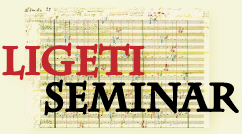Writing Your Article
(adapted from Laura Moss)
- No. 1. Who cares? Let your readers really see how this text or issue interests you: What’s paradoxical? What’s puzzling? What’s surprising?” Life is short. Why should I spend an hour reading this article? I want to know the answer in the opening paragraphs.
- No. 2. Hook the reader. I often write this statement in decision letters as I send back articles with a request to make the introduction more immediately engaging and to show why it is urgent at the outset. Ask core questions up front. Is it imperative that people read your work? Why now? Epigraphs are your good friends. Take a bit of time in the opening pages to emphasize your contribution to the topic or field. Note that the knowledge gap -- “no one has done this, so I will” -- is never enough.
- No. 3. Is the logic of organization in your article clear? If written in a way that is not simply a cataloging of what is to come, a "road map can lead to the wonderful sense of “aha! I see the logic of where we are going. Let’s go!”
- No. 4. Who are you writing for? If you are imagining an audience, imagine out loud.
- No. 5. Is there critical engagement with existing scholarship? Critical engagement, not just citation. How up-to-date (all from 20 years ago?) and historically deep (all from last year?) are your references? How extensive is your research is (all online? All from one collection?)? Do you entertain a range of views (counterarguments, existing criticism)?
- No. 6. Make room for intellectual and analytical engagement with quoted material. It is the author’s job to take the reader through the implications of the passage/case at hand and to relate it to the developing argument. Don’t be afraid to slow down and dig deep into the primary or secondary material. Your original voice will come through here.
- No. 7. Avoid being overly ambitious. Your article is not your dissertation in synopsis or a preview of your upcoming book. Significant contributions to scholarship can be minute and still have impact. Polished does not mean closed down. Knowledge can be incremental.
- No. 8. What do you want your reader to remember the most? At the end of an article, you need to make sure that your reader leaves with a takeaway message/point/question. What brief notes would you make if reading your own article? Be honest.
 print
print